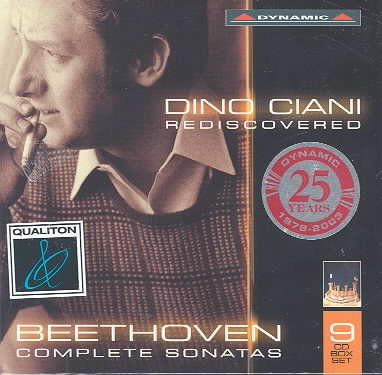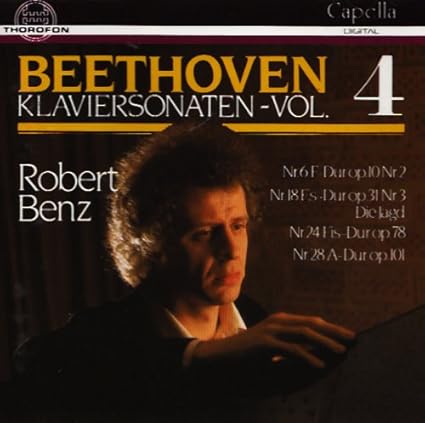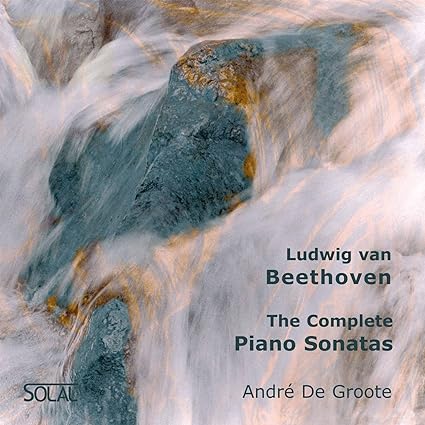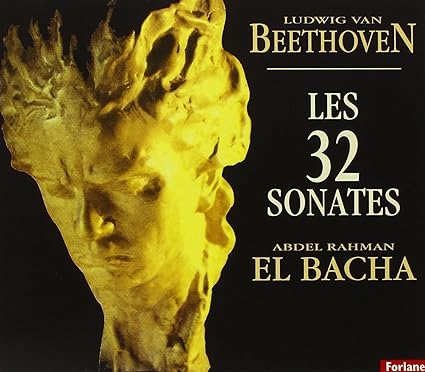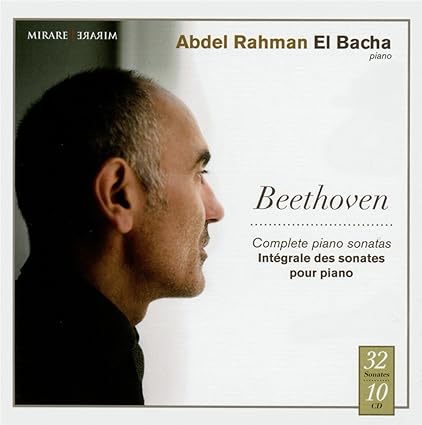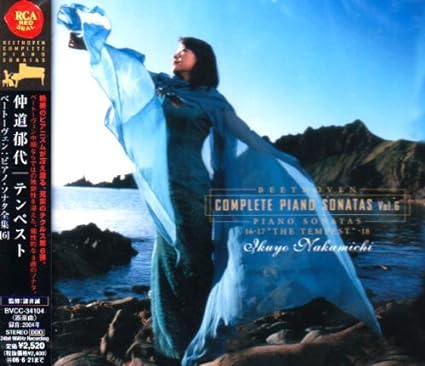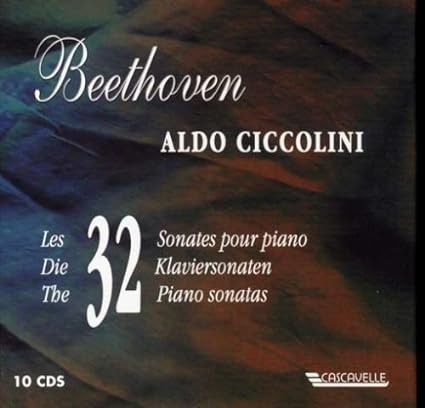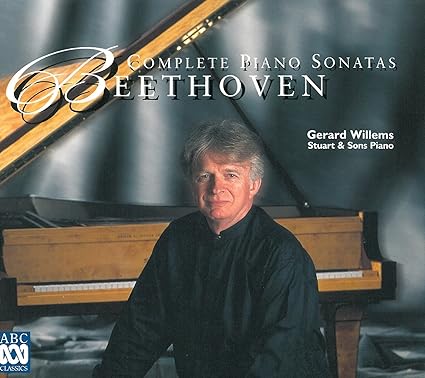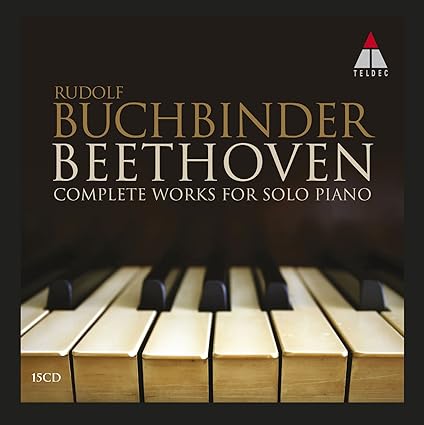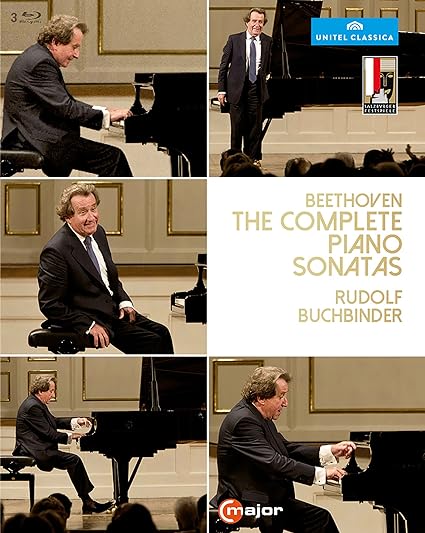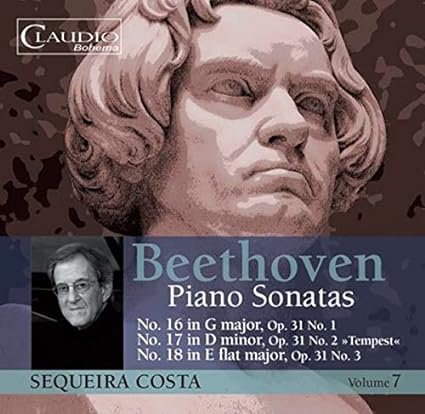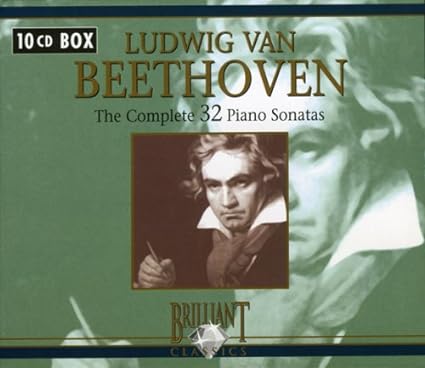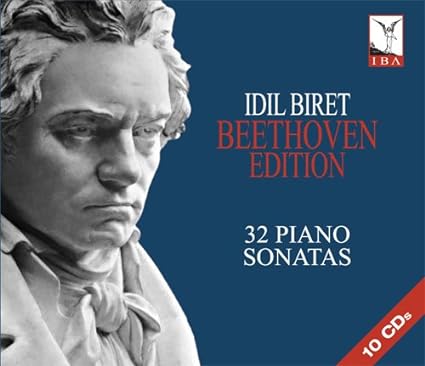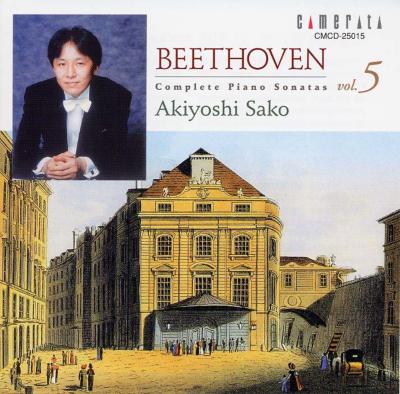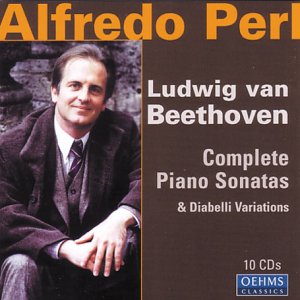Listened to the Americans. Did a here-and-now pianist shootout thing. Why not listen to what old, dead white Germans Bill and Bill did on disc? No good reason that I can think of, so here goes:
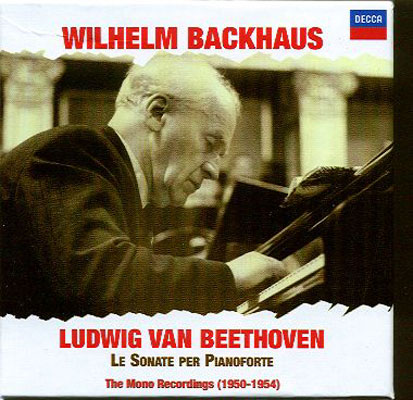

First, Wilhelm Backhaus. In the mono version, Backhaus omits the repeat in the Allegro, starts slow, then revs things up. While not the peppiest, lightest, etc, the old pro sort of just cruises along dandily, letting the music flow out from under his fingers. His note durations, sustains, pauses, accents, and dynamics all sound just right in the context of his conception. In the Scherzo, Backhaus plays with stern antics, adding left hand weight and a just right sense of mischievousness. Even the high pitch spurious noise cannot detract from the musical good time. The Menuetto is attractive but rather serious, with the Trio more serious yet, and the Presto sounds just fine. Again, it's not the highest energy version, but its just-rightness is impossible not to notice. Top tier stuff. The stereo recording, recorded not too terribly long afterward, is, unsurprisingly, much the same. Listening back to back makes me appreciate that there's actually what seems like a greater degree of freedom in the stereo recording, but a greater sense of purpose in the mono, which one can hear pretty readily in the Scherzo, for instance. Don't get me wrong, Backhaus' stereo remake is high end stuff, it's just not quite as good.
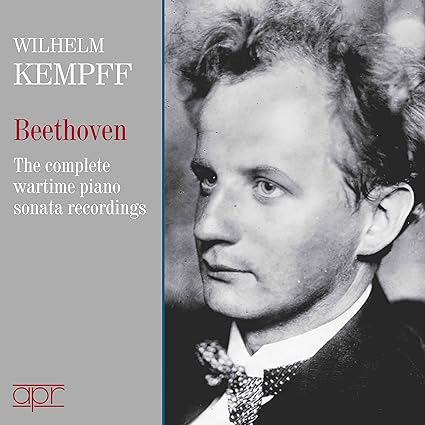
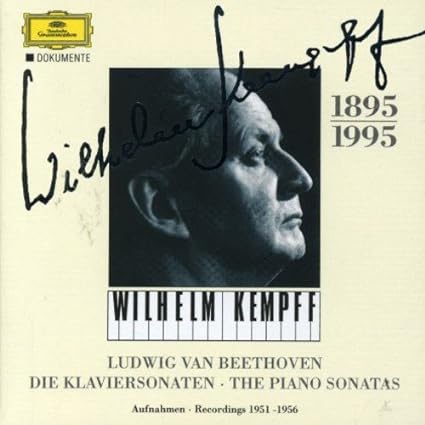

[/URL]
Second, twice as much Wilhelm Kempff! Starting with the wartime recording, early middle aged Kempff, like Backhaus, drops some music and comes in at an overall time in the Allegro that is strikingly similar. Kempff sounds much freer and more relaxed, though. There are whiffs of improvisational romanticism throughout. The Scherzo offers more of the same, with the pianist scampering across the keyboard in a jocular, none too heavy manner. The Menuetto, more than any other version to this point, is a gentle dance, while the Trio offers a striking contrast. The Presto is again fairly light and eminently flexible, with an inevitability to the sound. It's really quite something. As this essentially provides and aural glimpse of what prime age Kempff sounded like live, one gets to just absorb the superdupergoodness.
The mono DG set is more formal and less flexible. Everything still sounds light enough and conceptually similar, but it's just not as free. Too, though the sonics are better overall, the dynamic contrasts do not seem as relatively broad. The DG stereo set has slightly better dynamics, but it sounds a bit less free. Paradoxically, the playing sounds more fun, certainly in the Allegro, and even in the slower, less peppy Scherzo. The Menuetto is lovely, with the smallest hints of tension in the outer sections, and some in the Trio, while the Presto has nice energy and dynamics, if not the best clarity or balance. Still, it's quite nice.
The live recording on King International is different than the others in that the Allegro has no cuts, but rather it does have Kempff adding some improvisations (eg, a big ol' glissando) to cover up memory lapses and some undeniably sloppy playing while still, somehow, managing to get the spirit just right. Indeed, it's more spot on than the two magnetic tape studio efforts. The same holds true for the Scherzo, which sounds free and loose and carefree, with satisfying dynamic outbursts. The third movement ends being something quite special, with lovely, flowing, yet slightly tense outer sections, and a Trio that manages to marry punch and wistfulness. The Presto, while not exactly the most note-perfect rendition available, nonetheless has oodles of energy and drive and closes things out splendidly. Even given the performances' limitations, it's really rather excellent.
So, two top tier performances out of six, with nary a dud to be heard.



